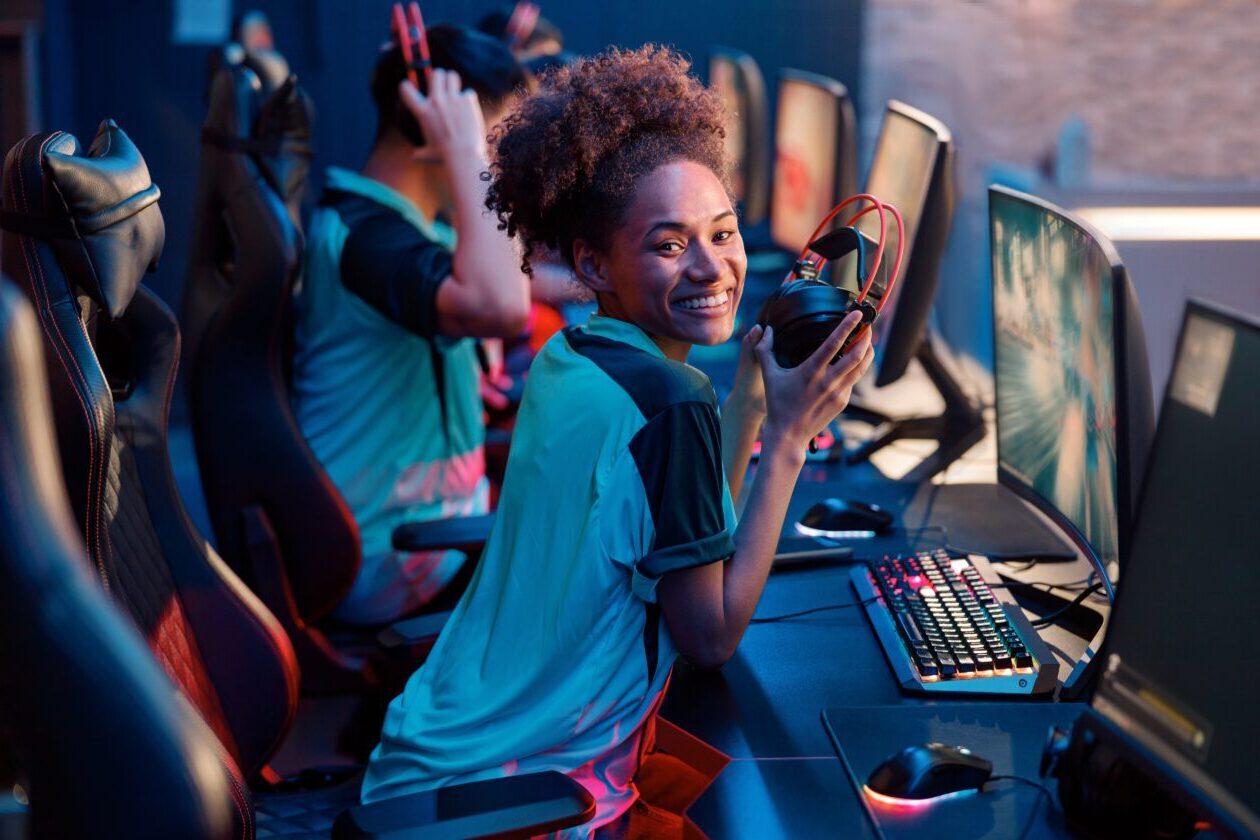
Ever wondered what makes gaming marketplaces tick? These digital hubs are where gamers buy, sell, and trade virtual goods, from rare skins to powerful weapons. But what really goes on behind the scenes? Gaming marketplaces have evolved into bustling economies, driven by player demand and innovative technology. Why should you care? Understanding these platforms can help you make smarter choices, whether you're a casual player or a hardcore gamer. From the rise of blockchain to the impact of microtransactions, there's a lot to unpack. Ready to level up your knowledge? Let's dive into 17 fascinating facts about gaming marketplaces!
The Rise of Gaming Marketplaces
Gaming marketplaces have transformed how players buy, sell, and trade digital goods. These platforms offer a wide range of services, from purchasing in-game items to trading rare collectibles.
-
Steam is the largest digital distribution platform for PC gaming, boasting over 120 million monthly active users. It offers a vast library of games, software, and user-generated content.
-
Epic Games Store has gained popularity by offering free games every week. This strategy has attracted millions of users and increased competition in the digital marketplace sector.
-
G2A is known for its marketplace where users can buy and sell game keys. It has faced controversy over the legitimacy of some keys, but remains a popular choice for gamers seeking discounts.
The Economics of In-Game Purchases
In-game purchases have become a significant revenue stream for game developers. These transactions range from cosmetic items to game-enhancing features.
-
Microtransactions generate billions of dollars annually for the gaming industry. They allow players to buy virtual goods, such as skins, weapons, and characters.
-
Loot boxes are a form of microtransaction where players purchase a box containing random items. This mechanic has sparked debates about gambling and regulation in gaming.
-
Battle passes offer a seasonal progression system where players can unlock rewards by completing challenges. This model has been popularized by games like Fortnite and Apex Legends.
The Role of Blockchain in Gaming Marketplaces
Blockchain technology is revolutionizing gaming marketplaces by introducing decentralized platforms and unique digital assets.
-
Non-fungible tokens (NFTs) are digital assets that represent ownership of unique items. In gaming, NFTs can be used for rare skins, characters, or virtual real estate.
-
Decentraland is a virtual world built on blockchain where users can buy, sell, and trade virtual land and items. It represents a new frontier for gaming marketplaces.
-
Axie Infinity is a blockchain-based game where players collect and battle creatures called Axies. The game's marketplace allows players to trade Axies and other in-game assets.
The Impact of Mobile Gaming Marketplaces
Mobile gaming has exploded in popularity, with marketplaces catering specifically to smartphone users.
-
Google Play Store and Apple App Store dominate the mobile gaming marketplace. They offer millions of games, from casual puzzles to complex RPGs.
-
Tencent is a major player in mobile gaming, owning popular titles like Honor of Kings and PUBG Mobile. Its marketplace strategies have set industry standards.
-
Gacha games are a popular genre in mobile gaming, where players spend money to obtain random characters or items. This model has proven highly lucrative.
The Future of Gaming Marketplaces
As technology evolves, gaming marketplaces will continue to innovate and expand.
-
Virtual reality (VR) marketplaces are emerging, offering games and experiences designed for VR headsets. Platforms like Oculus Store are leading this charge.
-
Cloud gaming services, such as Google Stadia and NVIDIA GeForce Now, allow players to stream games without needing powerful hardware. This could reshape gaming marketplaces.
-
Subscription services like Xbox Game Pass and PlayStation Now offer access to a library of games for a monthly fee. This model is gaining traction among gamers.
The Social Aspect of Gaming Marketplaces
Gaming marketplaces are not just about transactions; they also foster communities and social interactions.
-
Discord has become a hub for gamers to chat, share content, and organize events. Many gaming marketplaces integrate with Discord to enhance the social experience.
-
Twitch allows gamers to stream their gameplay live, creating a marketplace for content creators. Viewers can support their favorite streamers through donations and subscriptions.
Final Thoughts on Gaming Marketplaces
Gaming marketplaces have transformed how we buy, sell, and trade digital goods. From Steam to Epic Games Store, these platforms offer gamers a wide array of choices. Microtransactions and in-game purchases have become standard, driving the industry's revenue. User-generated content also plays a significant role, allowing players to create and share their own mods and skins. Security remains a top concern, with platforms implementing measures to protect users from fraud. Community features like forums and social media integration enhance the gaming experience, making it more social and interactive. As technology advances, expect even more innovations in this space. Whether you're a casual gamer or a hardcore enthusiast, understanding these marketplaces can enhance your gaming journey. So, next time you log in, you'll know a bit more about the ecosystem that powers your favorite games. Happy gaming!
Was this page helpful?
Our commitment to delivering trustworthy and engaging content is at the heart of what we do. Each fact on our site is contributed by real users like you, bringing a wealth of diverse insights and information. To ensure the highest standards of accuracy and reliability, our dedicated editors meticulously review each submission. This process guarantees that the facts we share are not only fascinating but also credible. Trust in our commitment to quality and authenticity as you explore and learn with us.


